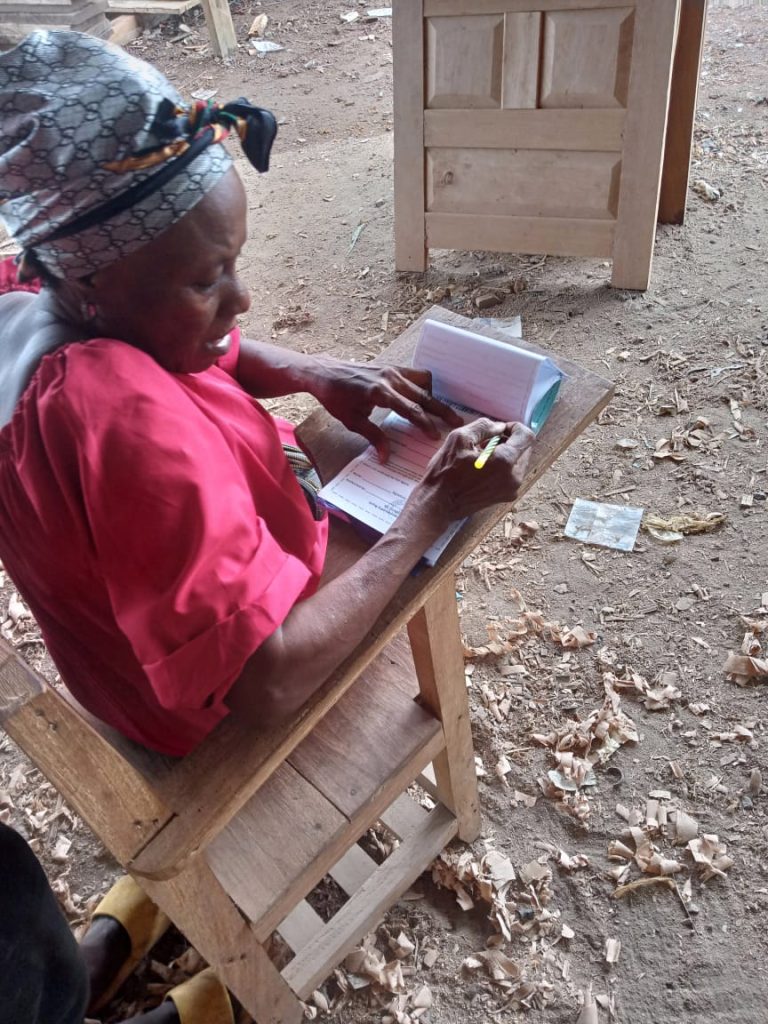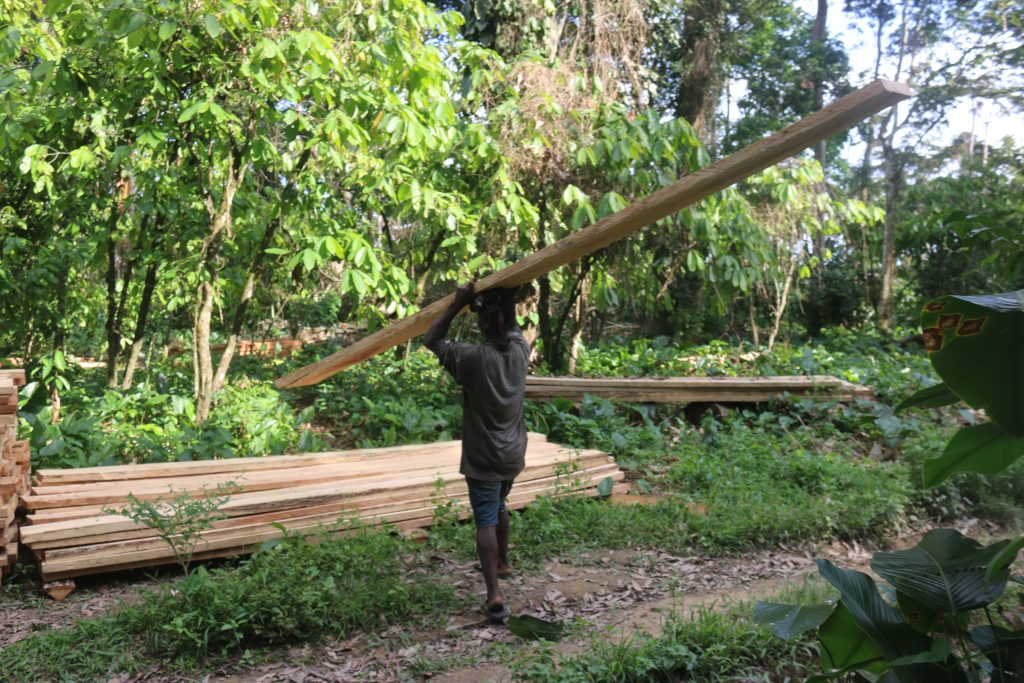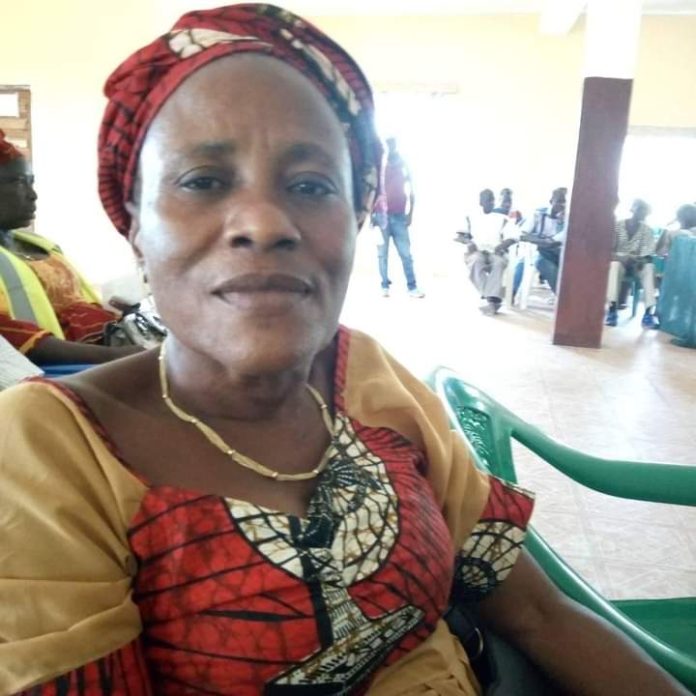Top: Garmai Kennedy, Lofa County Accountant, llegally collects L$1,000 from each truck transporting planks within and out of Lofa County. The DayLight/Mason Kollie
By Mason Kollie
VOINJAMA, Lofa County – In August last year, the Superintendent of Lofa County William Tamba Kamba abolished an illegal fee he imposed on planks leaving the northwestern county following a DayLight investigation.
Kamba had accepted that the collection was illegal.
“We stopped the toll collection [because] the county council comprising of representatives from the Ministry of Agriculture, [the Ministry of Internal Affairs], CSOs, and the youths did not approve [it],” said Kamba then.
Yet, a few months after Kamba’s admission, Garmai Kennedy, Lofa County’s accountant, reintroduced the illegal toll system.
Like under Kamba, plank dealers pay Kennedy L$1,000 for a truckload of planks transported within and out of the county, receipts of the transactions show.
“As long you are taking wood from Voinjama to Monrovia, you need to pay the Superintendent fee…, which I did two weeks ago,” Vesselee Lakpawolo, a plank dealer, said.
“I sent wood in town [recently] to my brother. I paid for the Superintendent fee to Garmai Kennedy, the accountant of the county,” Lakpawolo added, brandishing a receipt.

Plank dealers pay the fees directly to Kennedy, who gives them a receipt. She collects the fees at her home, in the streets of Voinjama and at the city’s checkpoint. One picture shows Kennedy writing a receipt to a dealer at a carpenter shop.
Kennedy has refused to account for the funds she has received, saying the money was for office use. “We have to buy [a] new flag, and facilitate some senior staff’s movements around the county,” she said.
Kennedy has been a cornerstone of the illegal plank toll in Lofa. During Kamba’s administration, she was responsible for collecting fees from all parts of the county, documents show.
A receipt The DayLight obtained in 2022 as part of another investigation revealed she received L$53,125 from a toll agent in Vahun. Kamba had introduced the illegal payment scheme in Vahun, following a leadership issue there before duplicating it throughout Lofa.
A 2019 document shows that she made several disbursements from fees collected from chainsaw millers in Foya.
County authorities collecting fees on plank goes against the practices of chainsaw milling, even in its unregulated state.

Local plank production or chainsaw milling began after the Second Liberian Civil War (1998-2003). It is the sole distributor of planks to domestic markets, with an estimated value between US$30 million and US$41 million, according to a 2017 report.
However, chainsaw milling has been unregulated since its emergence. Chainsaw millers get their wood by negotiating with forest owners in rural communities through verbal agreements. They pay the Forestry Development Authority (FDA)US$.60 per plank.
The Chainsaw Milling Regulation, completed by the FDA in 2022 and is yet to be enforced, recognizes community and FDA payments, but not the Office of the Superintendent.
Acting Superintendent Forkpa Roberts claims the toll collection is legal, citing a law. “Under the Local Governance Law (Act), the county authority has the right to generate revenue on [its] own,” Roberts told The DayLight.
Roberts’ claim is incorrect. The Local Government Act does not give superintendents or their staff any power to levy fees on any good. That power lies solely in the county council, a group that comprises chiefs, the youths, and the disabled community.
A county council has not been formed in Lofa, and superintendents or their staff are not members of the body, according to the law.
That was the same wrong claim Kamba made to defend the illegal toll system before admitting it was unlawful.
This story was a production of the Community of Forest and Environmental Journalists (CoFEJ).

